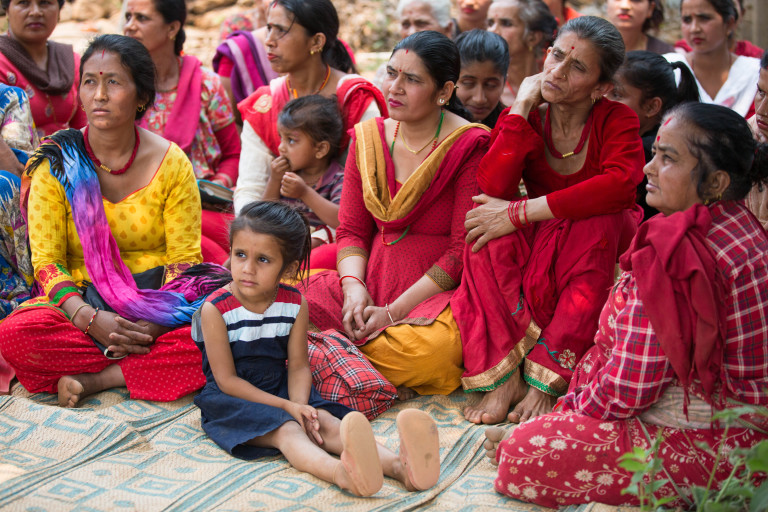The Lab has found that although the data collected is important, it is the manner in which it is collected that is most influential. Given Nepal’s conservative social structure, having female CFAs ask women in their communities about challenges or concerns is beneficial, particularly when dealing with sensitive topics like migration and family challenges. People have consistently expressed a greater willingness to share their stories with a CFA who is similar to them – in terms of gender and local community ties. Building trust is a critical component to effective data collection as problems related to migration are deeply stigmatized and even taboo to mention.
Conversations on closing the gender data gap too often focus solely on the data collection and analysis activities, often foregoing an important step of sharing results back with the community. Easily digestible, actionable information in the form of infographics, bulletins or newsletters, and radio programs go a long way in engaging community members in solving family and community challenges. And the dissemination of this information to all community stakeholders – including local officials and elected representatives– has motivated engagement and support by local government. For example, in one community, local officials have banded together in commitment to work toward creating safe and supportive migration policies. And in another municipality, a CFA was selected to join the government policy drafting committee to ensure the needs and concerns of local community members was considered throughout.
In working to close the gender data gap, we – collectors of data – should prioritize our accountability to the communities we collect data from. This means continuously feeding relevant updates on the data collected, trends, how it is being used, and actions taken to community back to the community members themselves.
This article was first published by Women Deliver on June 11th, 2018.



